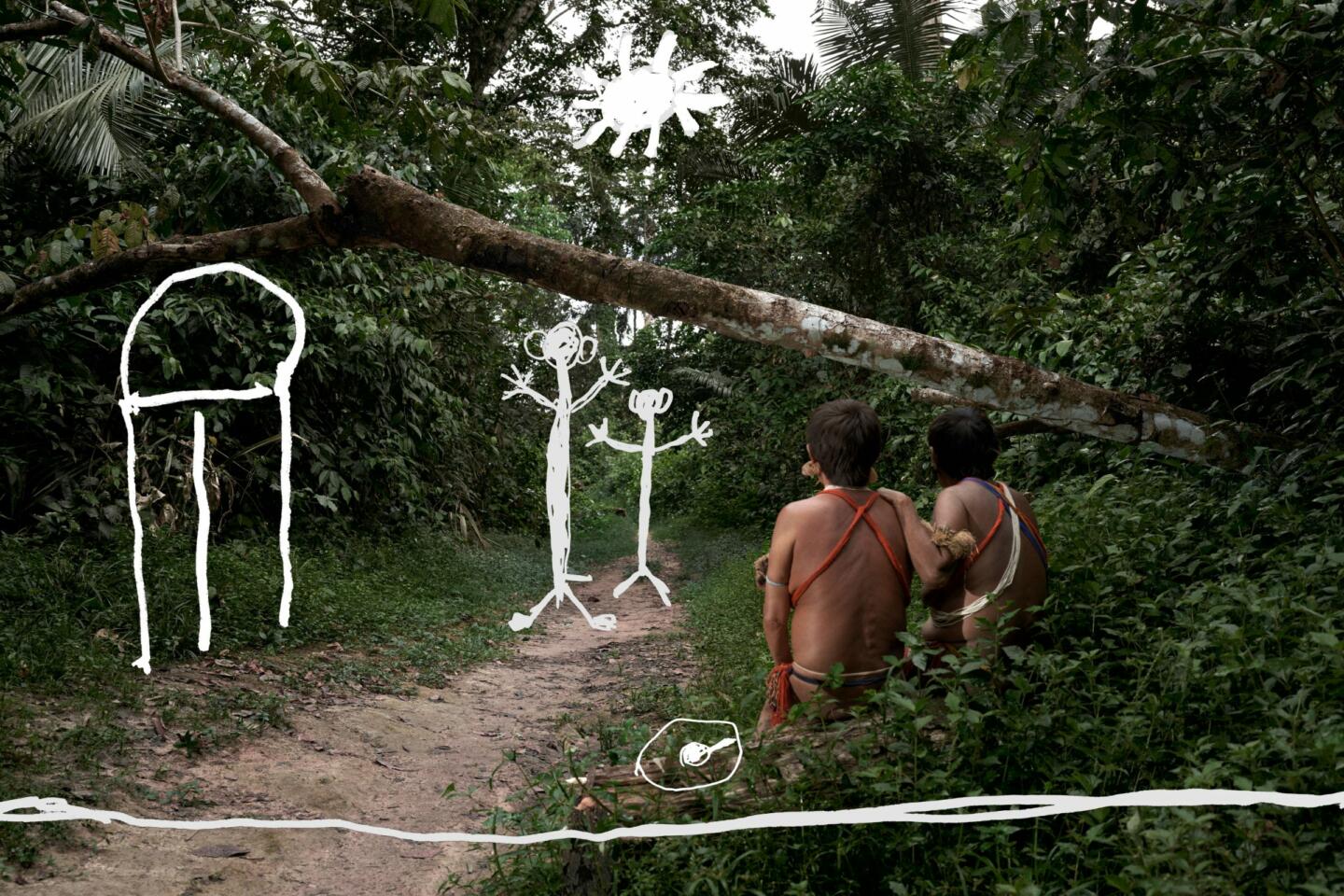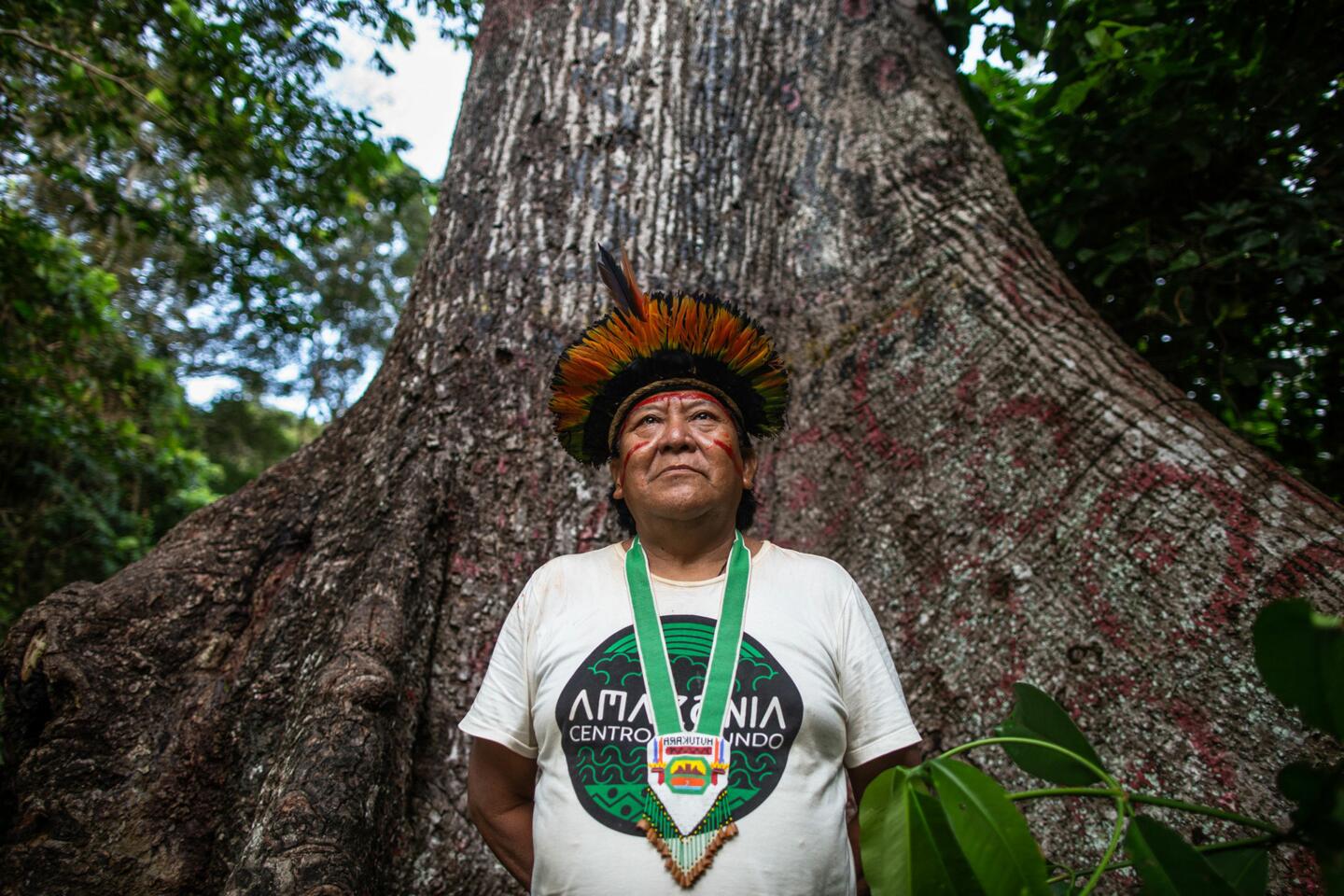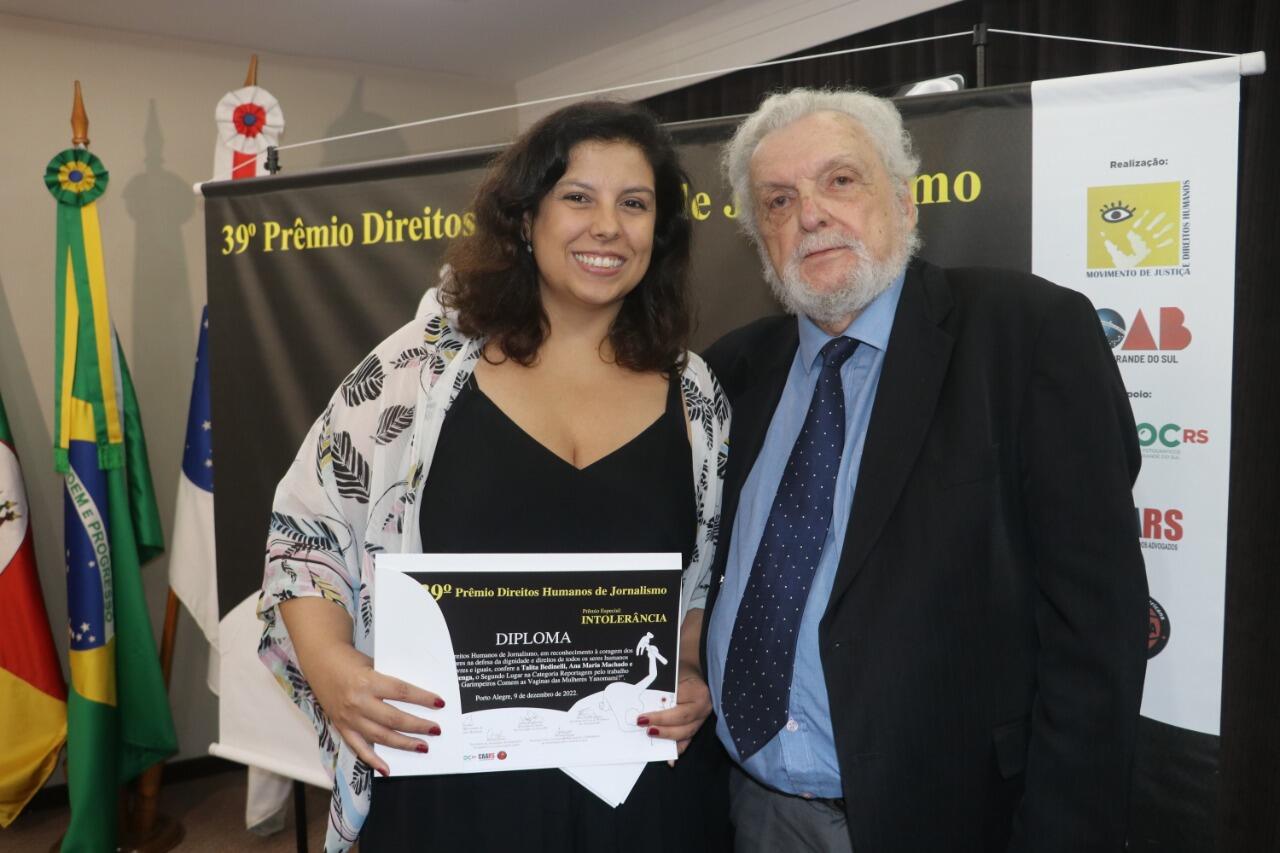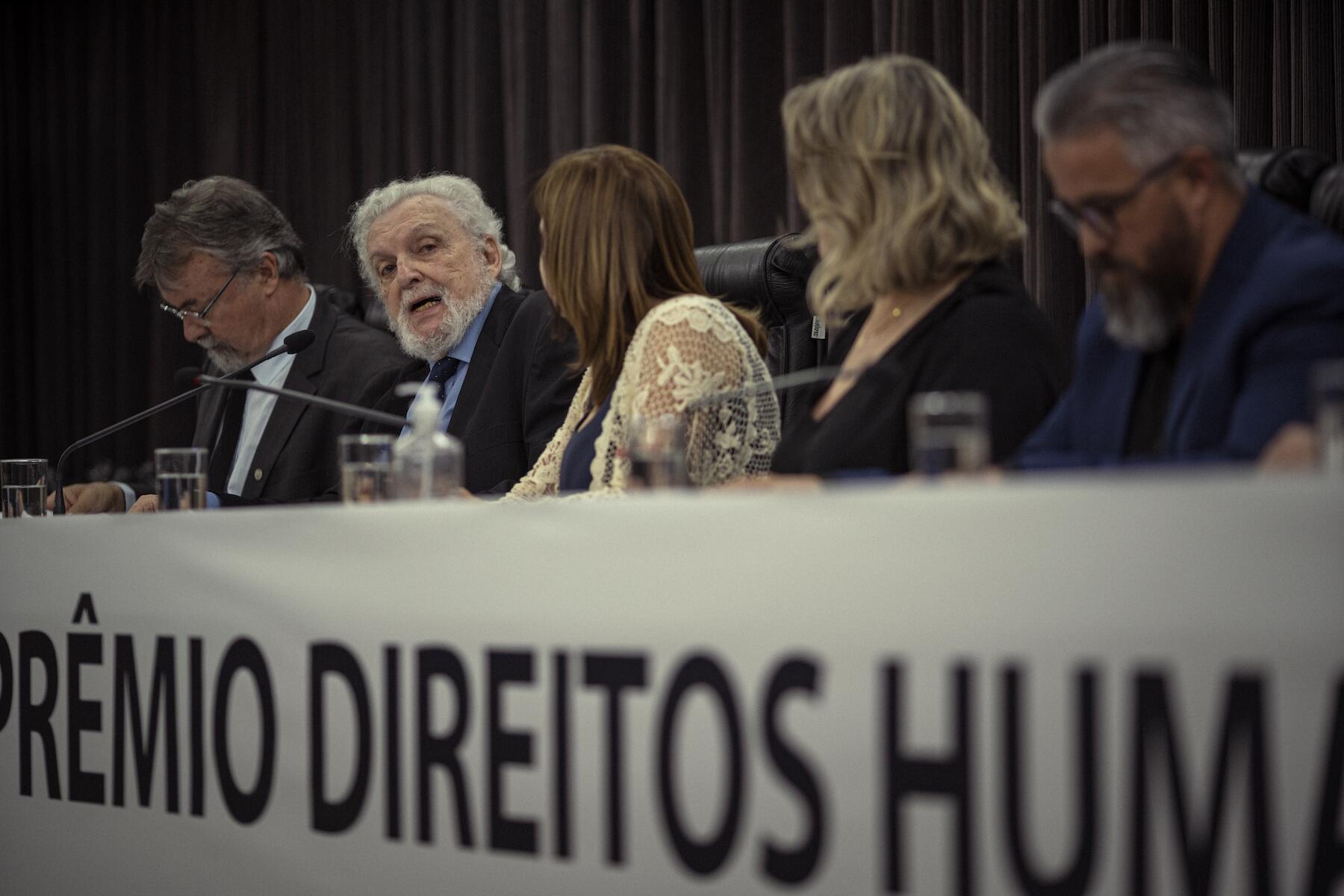SUMAÚMA’s debut story – “Why do the miners screw the vaginas of Yanomami women?” – has won second prize in the 39th Human Rights Journalism Awards of the Movement for Justice and Human Rights, supported by the Rio Grande do Sul section of the Bar Society of Brazil. The prize, the results of which were announced at a ceremony on December 9, attracted 340 entries. Talita Bedinelli’s article, published in September, was produced alongside indigenous expert, anthropologist and Yanomami language translator Ana Maria Machado, and photographer Pablo Albarenga, SUMAÚMA’s image editor. It was supported by Brazil’s Socio-Environmental Institute, one of the country’s most respected organizations.
The award-winning article was produced with the customary ethical care and journalistic rigor that forms part of our trilingual journalism platform’s charter of principles. We chose to tell the story of the humanitarian disaster experienced by the Yanomami people since their territory was invaded by an estimated 20,000 miners from the point of view of women, generally especially invisible. In order to understand the exact words of a population which, for the most part, does not speak Portuguese, and to understand their testimonies in their proper cultural context, we hired two translators – the Yanomami Ehuana Yaira, and Ana Maria Machado, who has over a decade of experience of working with Yanomami groups.

The title of the article was a phrase repeated by the women interviewed when reporting the collective rapes of teenage girls by groups of miners. Some of these girls were recruited by young Yanomami men corrupted by the invasion of illegal mining. With part of their territory dominated by organized crime, the indigenous people are threatened by the violence and diseases brought by the invaders, as well as illnesses caused by the contamination of rivers and streams. As we stated in our first editorial, SUMAÚMA “comes into being in a time of war, a war against nature and its peoples that has taken the planet to the brink of climate catastrophe. We know that women, whether adults or children, are the ones who are silenced the most and who suffer the most.”
So the women could be interviewed without risk to their lives, they were flown from their villages to a safe location. As they could not be identified, SUMAÚMA asked them to depict their experiences in drawings. Several drew large penises in the form of menacing figures. Photographer Pablo Albarenga created remarkable images that combined the women’s photographs with their drawings, in order to respect how they expressed the fear they experience on a daily basis, while not putting them in danger.
The Movement of Justice and Human Rights, created in the 1970s, played an important role during the business-military dictatorship which governed Brazil between 1964 and 1985, and in the country’s subsequent process of re-democratization. It is one of the most respected institutions not only in Brazil, but throughout the countries of the Southern Cone, where military dictatorships joined forces under what became known as Operation Condor, acting together in the repression, persecution, kidnapping and criminal execution of their opponents. When democracy returned to Brazil, the Movement of Justice and Human Rights continued to call for the politically disappeared to be found, and for the prosecution of crimes committed by State agents. It also plays an important role in drawing attention to violations against minorities. In 2017, its founder, Jair Krischke, a highly respected figure in the history of the battle for human rights, was included in a list of 13 people whose lives had been threatened. SUMAÚMA is deeply honored to have its work recognized by an institution with such a dignified history.
The winners of the reporting category of the 39th Human Rights Journalism Awards of the Movement for Justice and Human Rights were Vinícius Valfré, Leonencio Nossa and Wilton Junior, for “Drug cartels maintain parallel state in the Amazon”, in the Estado de S. Paulo newspaper, and Luiz Claudio Cunha for “Death of a torturer: covered up by the media, absolved by the justice system, condemned by history”, published by the Observatório da Imprensa. Weslley Galzo took second place alongside Talita Bedinelli for “Restorative justice proposes actions to facilitate reintegration of convicts” in the Estado de S. Paulo, while Raphael Guerra Chaves, of the Jornal do Commercio in Recife, was awarded third place for “Firearms kill, yet State ignorant of their origins”. The Extra Classe newspaper from Porto Alegre received an honorable mention for its story “Policy of exclusion and death in health plans”.

Below, a list of SUMAÚMA articles covering the crimes committed against the Yanomami people, beginning with the most recent. All make clear the urgent need for the removal of the invaders as soon as Brazil’s president-elect Luiz Inácio Lula da Silva takes power at the beginning of January.
- SUMAÚMA’s debut story. Second prize in the 39th Human Rights Journalism Awards of the Movement for Justice and Human Rights – “Why do the miners screw the vaginas of Yanomami women?”
- Diário de Guerra por Ana Maria Machado
A historical autopsy of a Yanomami murder - Article by Davi Kopenawa Yanomami
Bolsonaro flooded our land with miners - Nature in Power
Lula, Listen to the Yanomami - Interview: Davi Kopenawa Yanomami (Voice of the Forest)
“For me, the term climate change means the revenge of the Earth” - Interview: Hugo Ferreira Netto Loss, environmental analyst at the Brazilian Institute of Environment and Renewable Natural Resources and director of the National Association of Environmental Public Servants “The plan to end mining in the Yanomami Land is done, we just need to say, ‘Let’s do it’”






